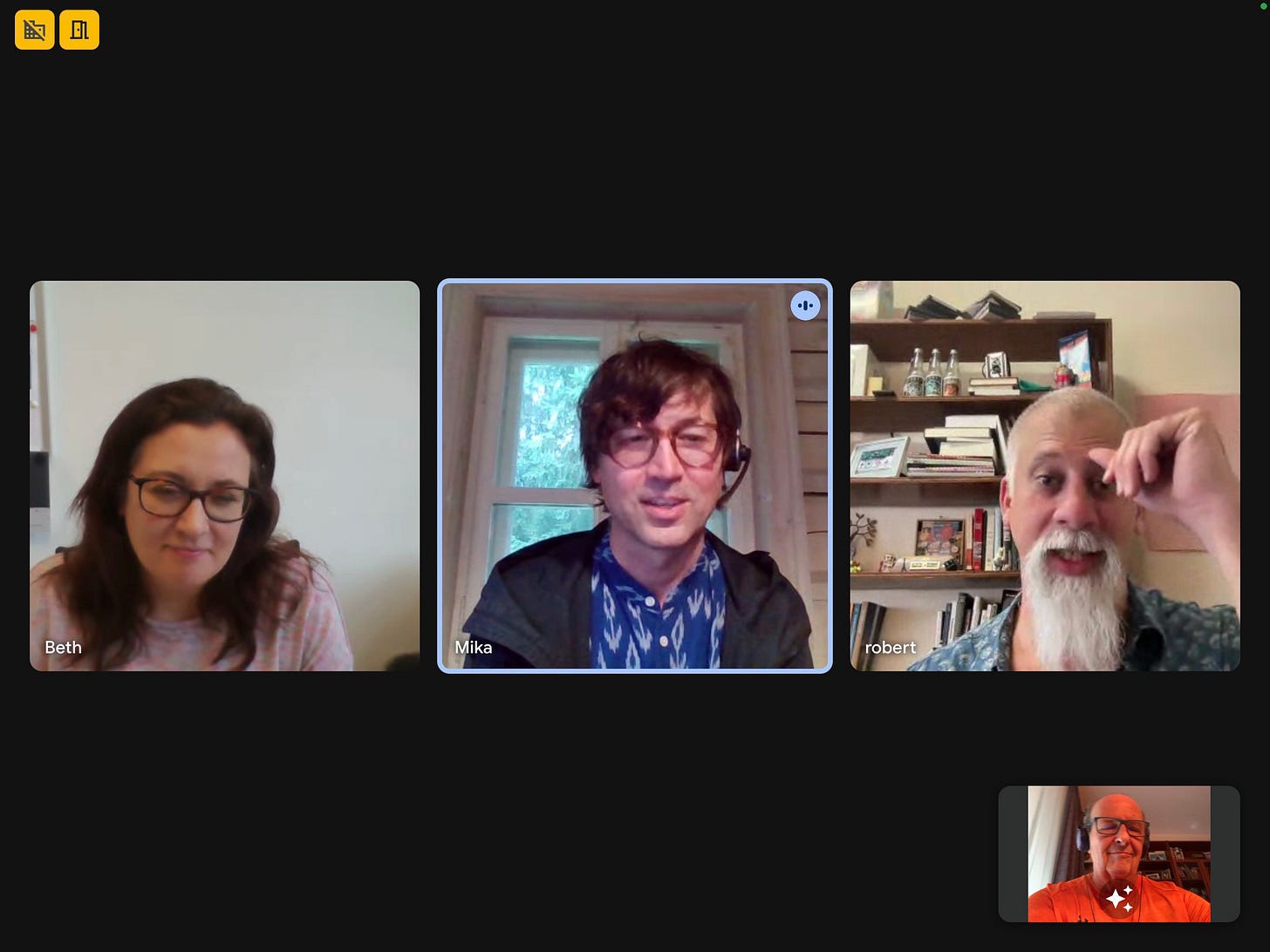AI and cyberconsciousness: big picture and spiritual implications
Join us at the Terasem Colloquium on Saturday, December 14 at 10am ET via Zoom.
Greetings to all readers and subscribers, and special greetings to the paid subscribers!
Please scroll down for the main topic of this newsletter. But first:
Recent writings at Mindplex:
No, science doesn’t have a problem with Joe Rogan
In praise of the excellent work that Joe Rogan is doing to bring science and technology closer to little people like us.
I love Joe Rogan’s “street science!”
AI could already reproduce your personality and behavior
AI technology could create simulation agents, which are AI models designed to reproduce the behavior of a specific person with high accuracy.
AI technology seems to be slowly advancing toward the futuristic personality capture technology envisioned by William Sims Bainbridge and Martine Rothblatt.
Besides long form articles, I write daily news posts at Mindplex.

I look forward to seeing you at the Terasem Colloquium on Saturday, December 14, 2024, from 10am ET (7am PT, 4pm CET) to 1pm ET (10am PT, 7pm CET), via Zoom. The Colloquium page has been updated with Zoom access coordinates and the agenda:
Zoom access coordinates
CLICK HERE to join the Zoom Meeting
https://us06web.zoom.us/j/81272327803?pwd=PCpNiqfoatX0Rq0Eg0d6b9MR2K8oyG.1
Meeting ID: 812 7232 7803
Passcode: 203809
Agenda
10:00 am ET - 10:05 am ET: Introduction by Giulio Prisco
10:05 am ET - 10:40 am ET: Beth Singler
10:40 am ET - 11:15 am ET: Weaver Weinbaum
11:15 am ET - 11:50 am ET: William Sims Bainbridge
11:50 am ET - 12:25 pm ET: Lincoln Cannon
12:25 pm ET - 1:00 pm ET: Robert Geraci
See the Colloquium page for more information about the speakers.
All speakers have written great books. The last book of the first speaker, Beth Singler, titled “Religion and Artificial Intelligence: An Introduction” (2024), has been published a few weeks ago. The ebook edition, with a Creative Commons license, can be downloaded for free in PDF and EPUB formats.
The book gives a panoramic view of the intersections of artificial intelligence (AI) and related emerging technologies with both established religions and new religious movements inspired by AI (or even designed by AI). The book is structured in case studies (20 in total) and commentaries. I’m the protagonist of one of the case studies and I’m very familiar with the material covered in some of the others. From this vantage point, I can say that the book presents a clear, informative and insightful bird view of a vast landscape.
If I can find one minus in the book (but I guess Singler considers it a plus), it is that Singler consistently adopts the perspective of a detached scholar who observes and reports without taking side. Of course this is the right perspective, but still, readers like me would like to hear what she really thinks about this or that case study.
Singler mentions a 2023 video chat with Robert Geraci, Mika Johnson, and me. The recording of the chat is very interesting, but it hasn’t been made public. Here’s a screenshot:
However, many of the things we said in the chat are covered in Singler’s book, especially in the case study centered on Mika Johnson, the spokesperson for Theta Noir, a new religious movement in which AI plays an important role. Johnson gave a talk at the Terasem Colloquium of December 2023.


